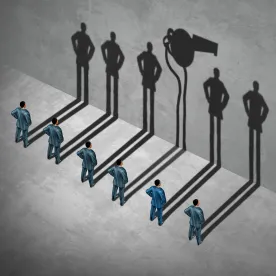The COVID-19 Whistleblower Protection Act, introduced yesterday, is the first coronavirus related whistleblower legislation introduced since the COVID-19 pandemic arrived in the United States. The whistleblower protections are part of the Coronavirus Oversight and Recovery Ethics (CORE) Act. It will ensure robust oversight, accountability, and transparency in the federal government’s response to the COVID-19 crisis.
This COVID-19 whistleblower protection legislation targets the misuse of federal monies spent in combatting the economic impact of the virus. It also covers reports of “substantial and specific dangers to the public health and safety” in federally supported programs. Senator Kamala D. Harris (D-CA) on introduced the bill on Monday, and Senators Elizabeth Warren (D-MA), Richard Blumenthal (D-CT), Chris Coons (D-DE), and Co-chair of the Congressional Progressive Caucus Representative Pramila Jayapal (D-WA), and the Chair of the House Democracy Reform Task Force Representative John Sarbanes (D-MD) joined as sponsors.
The CORE Act would:
-
Prohibit Conflicts of Interest: The bill addresses and eliminates conflicts in the selection or hiring of contractors or advisors and the distribution of relief grants and loans, similar to the provisions of the conflict in the 2008 TARP bailout. The bill provides an additional $25 million to the Office of Government Ethics to administer these rules.
-
Empowers & Protects Inspectors General: The legislation requires that inspectors general (IGs) can only be fired for good cause and requires the President to inform Congress when any IG, including an acting IG, is removed from their post. The bill further requires that IG vacancies be filled automatically by the first assistant to the last IG and that acting IGs enjoy civil service protections, ensuring that they have some recourse if they face retaliation.
-
Strengthen the Congressional Oversight Commission: The bill grants the Congressional Oversight Commission, which was established in the CARES Act, with subpoena authority for testimony and documents and expands its jurisdiction to include all COVID-19 relief funding, including the Small Business Administration’s Paycheck Protection Program.
-
Strengthen CARES Act Executive Branch Accountability & Oversight Entities: The bill requires the Treasury Secretary to submit a weekly list of any instances in which the Special Inspector General for Pandemic Relief (SIGPR) or the Pandemic Relief Accountability Committee (PRAC)-both established in the CARES Act-believe the executive branch has unreasonably denied them information in the course of their oversight.
-
Protect Whistleblowers: The bill establishes strong whistleblower protections for private sector workers (including essential workers) and government contractors who may witness waste, fraud, or abuse or be victims of misconduct related to Coronavirus relief. These provisions, modeled after the whistleblower protections Congress included in the 2009 Recovery Act, would protect Americans who call out wrongdoing, protect against all retaliation, and establish a safe, secure, and anonymous process for whistleblowers’ claims to be investigated by OSHA. The bill also establishes a direct channel for whistleblowers to submit complaints directly to the SIGPR, PRAC, and the Congressional Oversight Commission.
-
Restrict and Disclose Lobbying & Political Spending: The bill requires lobbyists to make monthly disclosures regarding all lobbying related to COVID-19 relief spending or lending.
-
Improve Transparency & Disclosure for Bailout Funds: The bill dramatically improves transparency where bailout funds are going. It requires recipients of bailout funds, including contractors and grantees, to provide regular public reporting about how that money is used.
-
Strengthen Enforcement: The bill allows any individual harmed by a company’s misuse of bailout funds to seek recourse through the courts to ensure that harmed parties, like workers fired after a company committed to not fire anyone after receiving bailout funds, have the ability to bring private lawsuits and seek damages against bailout recipients who do not adhere to bailout terms.
Read the Congressional Press Release for more a more detailed explanation of these provisions.
“This is a major step forward,” said Stephen M. Kohn, a partner in the whistleblower law firm of Kohn, Kohn and Colapinto. “The bill permits whistleblowers who suffer retaliation to report COVID-19 related violations, file a case in federal court, and obtain compensatory and exemplary damages. These are among some of the ‘best practices’ affirmed in the bill,” Kohn added.
“We hope that the Republican caucus will join in this reform effort and endorse strong protections for whistleblowers. Whistleblower protection is a bi-partisan issue and has historically enjoyed strong support from both Democrats and Republican,” said Kohn, who is also the Chairman of the National Whistleblower Center.




 />i
/>i
